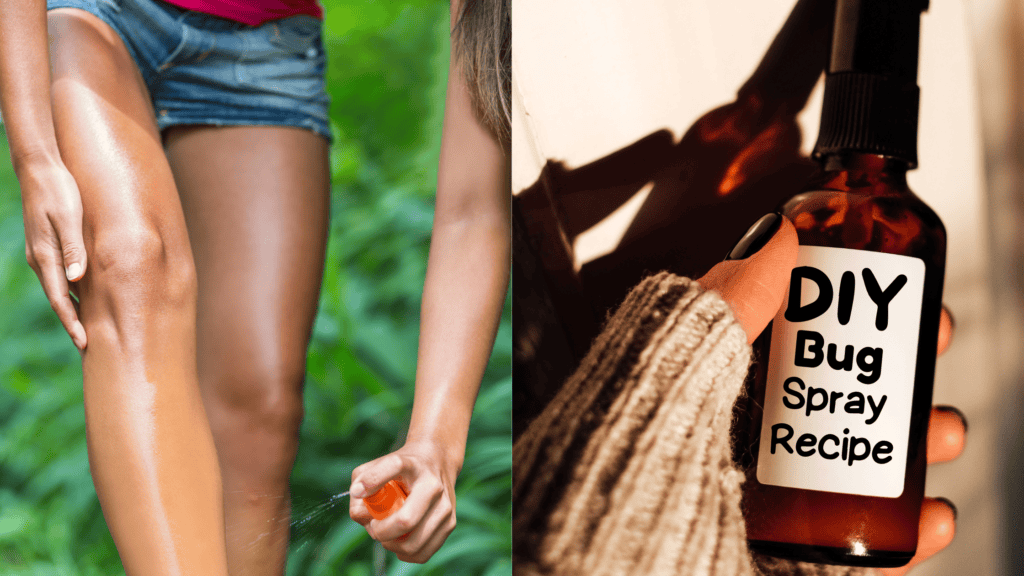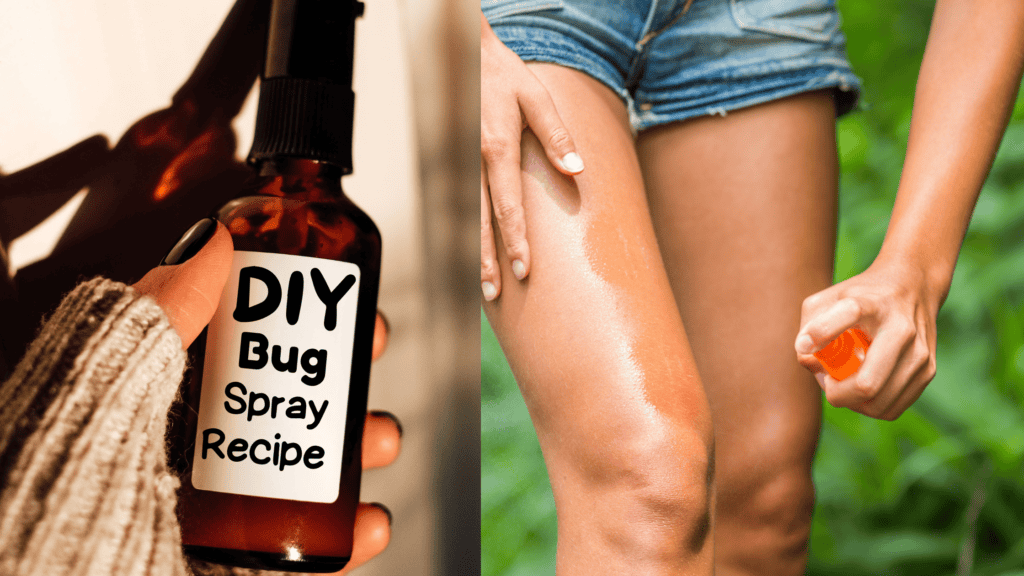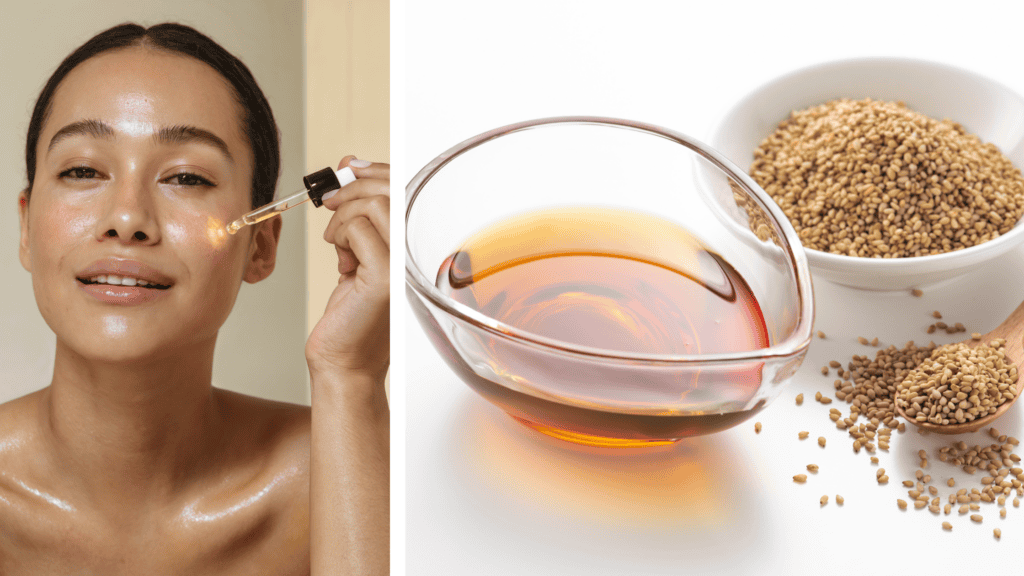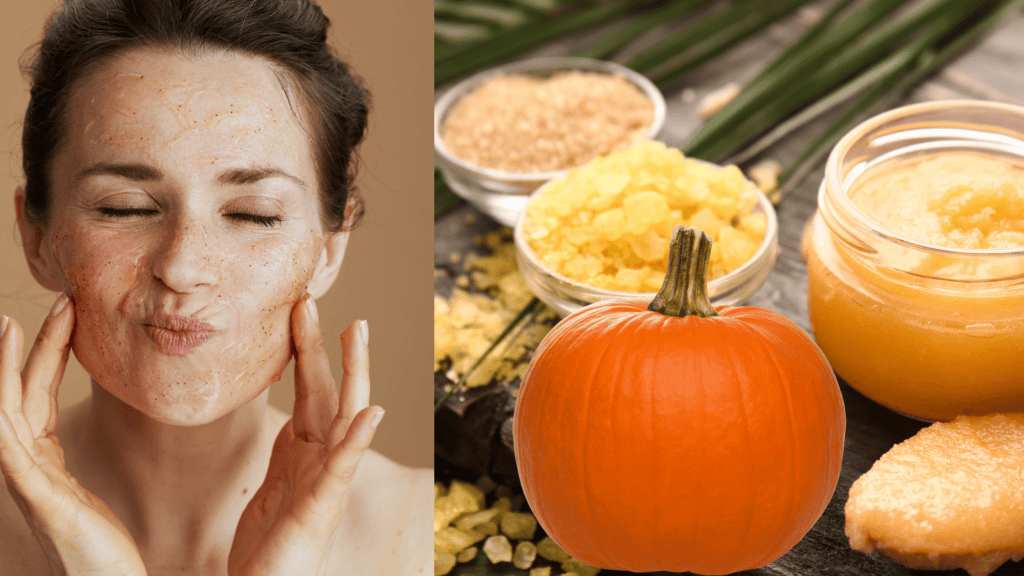If you use natural beauty products, it makes no sense to rely on commercial bug sprays that can contain questionable ingredients. We liberally spray these over our bodies to keep mosquitos and other biting insects at bay, and it is better to look for more natural versions* to keep us and our loved ones safe!
Luckily, it is easy to whip up a more natural bug spray at home using essential oils well known for their repelling properties! Making DIY natural bug spray offers several benefits compared to commercial products, as many conventional bug sprays often contain harsh chemicals like DEET, which can cause skin irritation and long-term health concerns.
In contrast, natural bug sprays use essential oils and plant-based ingredients that repel insects and are gentle on the skin.
Essential oils like citronella, tea tree, and eucalyptus work by masking the natural scent that attracts insects, creating a protective barrier. Many of these oils also have antibacterial and anti-inflammatory properties, soothing the skin while protecting against bug bites. This makes natural bug sprays a safer, eco-friendly alternative that nourishes your skin while keeping insects away!

DIY Natural Bug Spray Recipe!
Here’s a simple DIY natural bug spray recipe using essential oils and other natural ingredients!
Ingredients;
- 1/2 cup witch hazel* (acts as a base and astringent)
- 1/2 cup distilled water*
- One tablespoon vegetable glycerin* (optional for a smoother texture)
- Ten drops of citronella essential oil* (repels mosquitoes)
- Ten drops of tea tree essential oil* (anti-bacterial and insect-repelling)
- Ten drops of lavender essential oil* (soothing and repels insects)
- Five drops of eucalyptus essential oil* (repels insects, especially mosquitoes and ticks)
- Five drops of peppermint essential oil* (effective against flies and mosquitoes)
- Spray bottle* (glass or BPA-free plastic)
Instructions:
- Combine the witch hazel and distilled water in a bowl.
- Add vegetable glycerin (if using) for a smoother spray.
- Drop in the essential oils and stir well to mix.
- Pour the mixture into a spray bottle.
- Shake before each use and apply on exposed skin or clothing.
Spray this DIY bug spray around exposed areas like the neck, ankles, and arms. Use it minimally and build up as necessary!
This bug spray can be stored for up to a month or two. To preserve the potency of the essential oils, keep them out of direct sunlight.
This DIY bug spray is effective against most biting bugs; for protection against ticks, it is important to note that while some essential oils can help repel ticks, they may not be as long-lasting or potent as chemical-based repellents.
However, essential oils help mask the scents that attract ticks, acting as natural deterrents. The following essential oils are particularly effective against ticks:
- Rose geranium oil* has many skincare benefits and is one of the most effective essential oils for repelling ticks.
- Eucalyptus oil – Contains compounds that deter ticks and can be used safely on the skin when diluted.
- Cedarwood oil* effectively repels ticks and can disrupt their life cycle.
- Lavender oil has a mild repelling effect and is safe for most skin types, making it a good option for children.
- Lemongrass oil* – Contains citronella, which repels both ticks and mosquitoes.
- Tea tree oil* is a powerful essential oil with many skincare uses. It is known for its insect-repelling properties and can effectively repel ticks and mosquitoes. Its strong scent comes from compounds like terpinen-4-ol, which can deter these biting bugs!
Substitute or add these essential oils to the DIY bug spray recipe for your concerns!
Important Considerations:
Dilution: Essential oils for bug spray recipes should always be diluted with a carrier, such as witch hazel, water, or vegetable oils, before being applied to the skin.
Effectiveness: Natural, essential oil-based bug sprays may require more frequent reapplication than synthetic options.
Safety: Not all essential oils are safe for everyone, particularly young children or pets, so it is necessary to choose mild and non-toxic essential oils for natural bug spray recipes based on the user’s needs.
When using DIY bug sprays, combine them with protective clothing. Regular tick checks are often recommended for more thorough protection in tick-heavy areas.
Conclusion.
Natural DIY bug sprays are very effective and safe to use. They contain essential oils and plant-based ingredients that repel insects yet are gentle on the skin.
Essential oils in this DIY bug spray recipe, like citronella, tea tree, and eucalyptus, mask the natural scent that attracts insects. They also have antibacterial and anti-inflammatory properties that soothe the skin while protecting against bug bites.
Natural bug sprays are a safer, eco-friendly alternative that is inexpensive to make while also nourishing your skin while working to protect you from pesky bug bites!
This post contains affiliate links marked with an *. If you purchase through these links, we may receive a small commission, which will not affect your sales.




